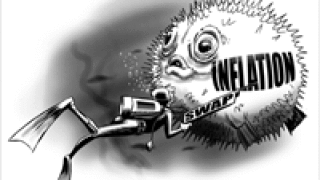Derivs - Regulation
-
The Commodity Futures Trading Commission has issued no-action letters to address trade complications surrounding clerical error trades and has extended no-action relief for SEF execution confirmations.
-
Despite industry efforts to shift trading on swap execution facilities to electronic central limit order books, voice broking and request for quote systems still play important roles, said industry insiders on Wednesday.
-
Panellists at the 2015 International Swaps and Derivatives Association (ISDA) AGM lamented the lack of global central counterparty equivalence and have called for a number of legislative reviews to rectify it.
-
Global swaps participants should use the BCBS-IOSCO margin rules delay as an opportunity to face new issues posed by initial and variation margin requirements, experts say.
-
Global swaps participants can benefit from using decentralised, multitool approaches towards regulatory reporting in order to reduce costs and increase efficiency, according to a data vendor.
-
LCH.Clearnet’s SwapClear has become the first central counterparty to offer global clearing of inflation swaps, which it believes will provide better risk management for buyside firms.
-
The Securities Industry and Financial Markets Association (SIFMA) has urged US regulators to disregard recommendations that the asset management industry should be regulated like large banks.
-
The European Securities and Markets Authority (ESMA) is centralising trade data submissions from trade repositories and trading venues via European national competent authorities, facilitating data harmonisation, transparency and access.
-
Demand for principle-at-risk products has created a growth opportunity in structured products, but the industry needs education to evolve, according to panellists at the SPA-2015 Structured Investments conference in New York.
-
A central counterparty stress test framework proposed by LCH.Clearnet assesses risk impacts in several adaptive scenarios under the cover 2 requirement and a default auctioning protocol.
-
Progress on global derivatives reform is at a critical juncture. The goal of enhanced transparency, identified by the G20 following the 2008 crisis as crucial to the supervision of the financial system, remains only partly addressed because of a number of practical and legal barriers that limit data sharing across jurisdictions. As a result, the cross-border identification of systemic risk remains challenging for macroprudential authorities.
-
The International Swaps and Derivatives Association unveiled the members of the five regional determinations committees that make binding decisions regarding credit events, succession events and auctions to determine the final price for credit default swap settlement globally.


